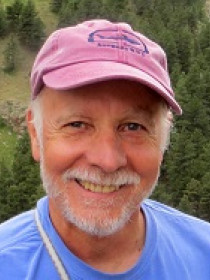Connect with Lawrence
About Lawrence
Hamilton's research is on human-environment interactions, in regional settings from New England and Oregon to Alaska, Greenland or the circumpolar North, it often involves interdisciplinary collaborations that integrate social with natural science. He also conducts survey research on US public perceptions of science, connecting topics such as climate change and COVID-19.
Contributions
Climate Affects Society - and Society Affects Climate
Key Findings Brief,
In the News
Lawrence Hamilton's research on perceptions about climate change discussed by "UNH Research: Trump and Clinton Supporters Differ on Science," Fosters.com, October 11, 2016.
Guest to discuss climate change denial on Minnesota Public Radio: The Psychology of Climate Change Denial, Lawrence Hamilton, April 16, 2015.
"Political Bias Meets Climate Bias: Overcoming Science Denial in a Politically Polarized World," Lawrence Hamilton, Interview with Minda Berbeco, National Center for Science Education, 2013.
Guest to discuss public opinion on climate change on NPR All Things Considered: The Demographics of Disagreement on Climate Change, Lawrence Hamilton, April 15, 2013.
Publications
"Rural Environmental Concern: Effects of Position, Partisanship and Place" (with ). Rural Sociology 79, no. 2 (forthcoming): 257-281.
Argues that environmental concerns expressed by rural residents on surveys show place-to-place variations reflecting local conditions, and also broad patterns reflecting national divisions.
"Environmental Views from the Coast: Public Concern about Local to Global Marine Issues" (with ). Society and Natural Resources 28, no. 1 (2015): 57-74.
Argues that partisan differences mark coastal residents’ views of marine environmental problems, from local to global in scale.
"Polar Facts in the Age of Polarization" Polar Geography (2015).
Surveys of public knowledge about the north and south polar regions. Argues that some purely factual questions behave like political opinions, while others behave neutrally and provide a reality check for self-assessed “understanding” about climate change.
"Methodological Approaches for Sociological Research on Climate Change" (with ), in Sociological Perspectives on Global Climate Change, edited by Riley E. Dunlap and Robert J. Brulle (Oxford University Press, 2015), 369-411.
Explores possibilities for bridging the separate realms of social and natural sciences to better understand the interplay between climate change and social beliefs about climate change.
"Arctic Warming and Your Weather: Public Belief in the Connection" (with ). International Journal of Climatology 34 (2014): 1723–1728.
Argues that public acceptance that Arctic warming could affect weather where one lives is fairly high overall, but also partisan and influenced by today’s weather.
"A Four-Party View of U.S. Environmental Concern" (with ). Environmental Politics 24, no. 2 (2014): 212-227.
Argues that across a range of different environmental and science questions on surveys, the views of non-Tea Party Republicans are closer to Independents than they are to Tea Party supporters.
